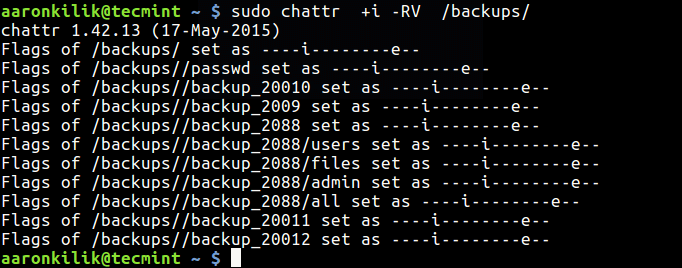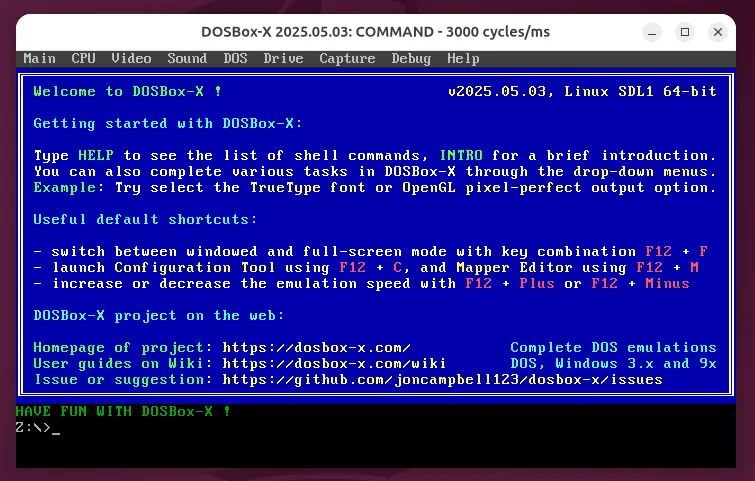On Unix-like operating systems including Linux, root is the account or user name that by default can modify all directories and files on a system. In this article, we’ll show how to make directories or files unremovable even by the root user in Linux.
To make a file undeletable by any system user, including root, you need to make it unmodifiable using using the chattr command. This command changes file attributes on a Linux file system.
How to Make File Undeletable in Linux
The command below makes /backups/passwd file immutable (or undeletable). This implies that the file can’t be modified in any way: it can’t be deleted or renamed. You can’t even create a link to it and no data can be written to the file as well.
Note that you need superuser privileges to set or remove this attribute, using the sudo command:
$ sudo chattr +i /backups/passwd OR $ sudo chattr +i -V /backups/passwd

To view attributes of a file, use the lsattr command as shown.
$ lsattr /backups/passwd

Now try to remove the immutable file, both as a normal user and as a root.
$ rm /backups/passwd $ sudo rm /backups/passwd

How to Recursively Make Directory Undeletable in Linux
Using the -R flag, you can recursively change attributes of directories and their contents as follows.
$ sudo chattr +i -RV /backups/

To make a file mutable again, use -i sign to remove the above attribute, as follows.
$ sudo chattr -i /backups/ passwd
For more information, read this article: 5 ‘chattr’ Commands to Make Important Files IMMUTABLE (Unchangeable) in Linux
You will find these related article useful:
- How to Manage Users and Groups in Linux
- Managing Users & Groups and Enabling sudo Access on Users
- How to Find Files With SUID and SGID Permissions in Linux
- Translate rwx Permissions into Octal Format in Linux
That’s it! In this article, we showed how to make files unremovable even by the root user in Linux. You can ask any questions via the feedback form below.



